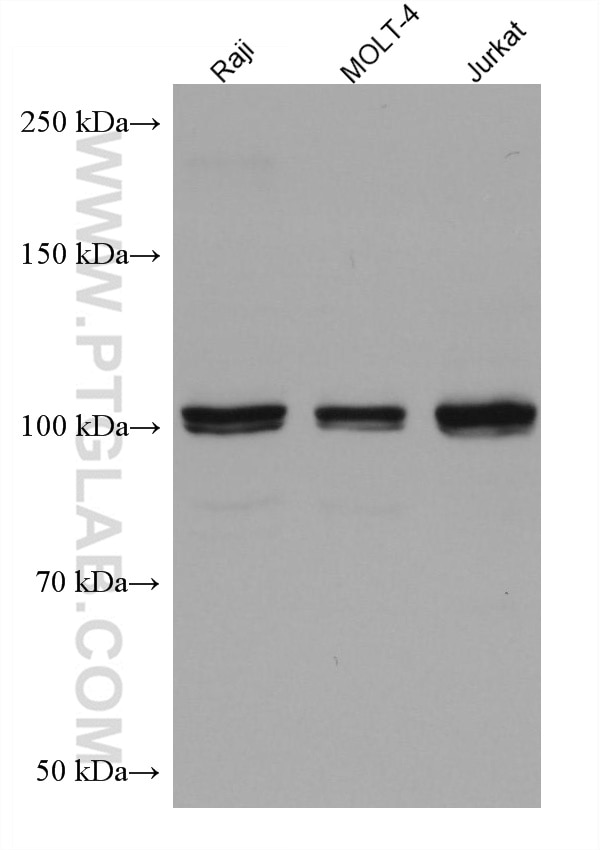FGFR4 Monoklonaler Antikörper
FGFR4 Monoklonal Antikörper für WB, Indirect ELISA
Wirt / Isotyp
Maus / IgG1
Getestete Reaktivität
human
Anwendung
WB, Indirect ELISA
Konjugation
Unkonjugiert
CloneNo.
1A2B5
Kat-Nr. : 67800-1-PBS
Synonyme
Geprüfte Anwendungen
Produktinformation
67800-1-PBS bindet in WB, Indirect ELISA FGFR4 und zeigt Reaktivität mit human
| Getestete Reaktivität | human |
| Wirt / Isotyp | Maus / IgG1 |
| Klonalität | Monoklonal |
| Typ | Antikörper |
| Immunogen | FGFR4 fusion protein Ag17041 |
| Vollständiger Name | fibroblast growth factor receptor 4 |
| Berechnetes Molekulargewicht | 88 kDa |
| Beobachtetes Molekulargewicht | 100-110 kDa |
| GenBank-Zugangsnummer | BC011847 |
| Gene symbol | FGFR4 |
| Gene ID (NCBI) | 2264 |
| Konjugation | Unkonjugiert |
| Form | Liquid |
| Reinigungsmethode | Protein-G-Reinigung |
| Lagerungspuffer | PBS only |
| Lagerungsbedingungen | Store at -80°C. 20ul Größen enthalten 0,1% BSA. |
Hintergrundinformationen
Fibroblast growth factor receptor 4 (FGFR4) is a member of a highly conserved tyrosine kinase family, along with FGFR1-3. This family consists of an intracellular tyrosine kinase domain, a single transmembrane domain, and extracellular ligand binding domains (PMID:32492514). FGFR4 is the predominant FGFR isoform present in human hepatocytes. FGFR4 has been proposed to play a role in the observed induction of hepatocyte proliferation and carcinogenesis by FGF19; however, contradicting evidence proposing a protective role for FGFR4 in suppressing hepatoma progression has also been proposed(PMID:20018895). While the role of FGFR4 in cancer remains to be fully elucidated, several findings suggest that this receptor may be an important player in Hepatocellular carcinoma (HCC) development and/or progression(PMID:10336501).



